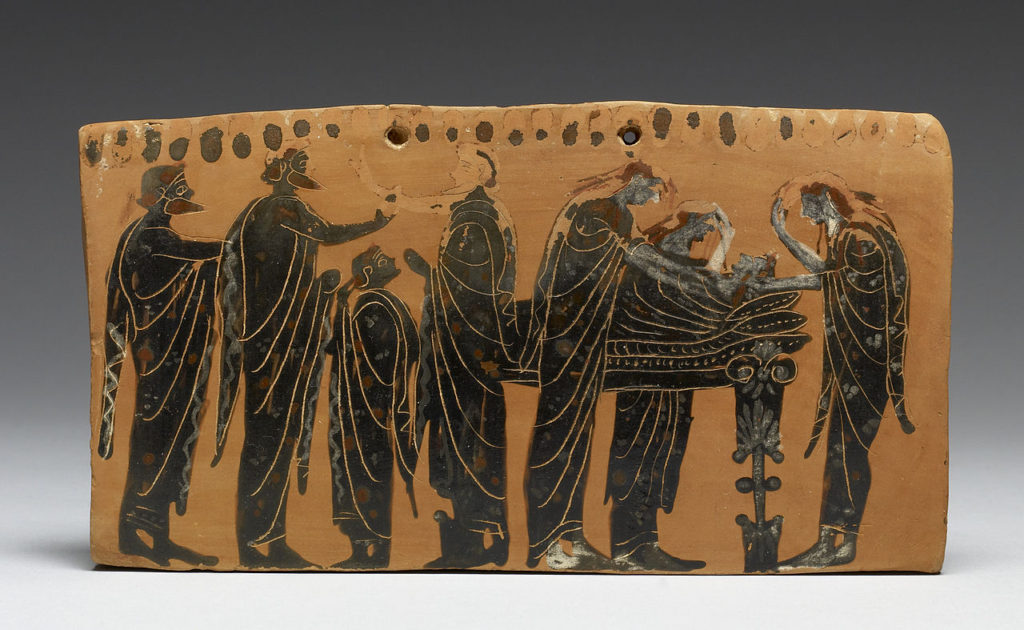Translated by Steven J. Willett

This is a black-figure terracotta pinax (plaque) from the 2nd half of the 6th-century BC. It has holes for hanging in a temple and depicts a prothesis scene, the lying-in-state of the deceased surrounded by the mourning families. Some of them are tearing their hair while others are gesturing wildly in despair.
Infinite was, o man, the time before, until to light you came, and infinite again to Hades. What share of life is left remaining, either great as a spot or even tinier than a spot? A small harshly-straitened life is yours; for it never is sweet, but sullen more than hated death. Men carefully wrought from such a collection of bones enframed, why fly to highest air and clouds? O man, see how useless, when at the peak of thread a worm is sitting on unwoven vesture: it plucked so much, stripped so bare a skeleton leaf, more hateful than a spider’s withered web. From every dawn seek, O man, your breadth of strength, and learn to slouch quite low in frugal life. Always remember deep in thought so long as you dwell among the living, you are framed from stubble.

At first read one might sense futility, fragility or pending morbidity. On further read it became humility, frugality, striving and the rim of grandeur. Like a Greek, he believed in the Gods. We may be mere specks, but we are specks within some grander scheme.
This is an excellent comment, and I agree with it. The Greeks had a keen dislike of ὕβρις, and Leonidas was particularly sensitive to it since he wrote memorial epigrams for a wide range of wealthy, political and artist deceased.
In the caption the word “gestating” probably should be “gesturing”.
Thanks for the typo correction. I posted the translation late at night and didn’t proof it properly.
That’s Biblical. It’s remarkable how the recovery from the post-Bronze Age dark age produced such uniform thought across the entire Mediterranean, no matter which gods they actually believed in.